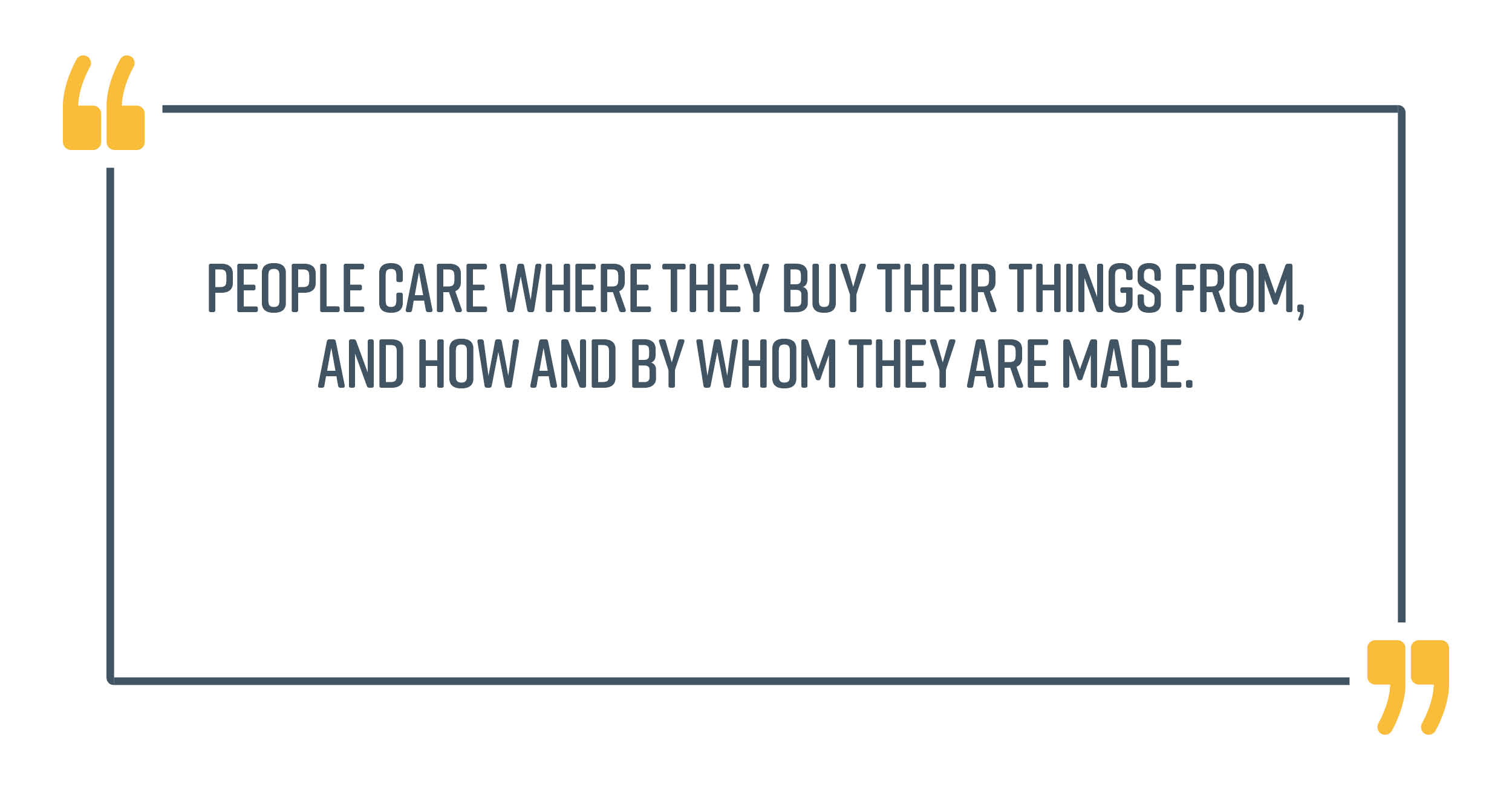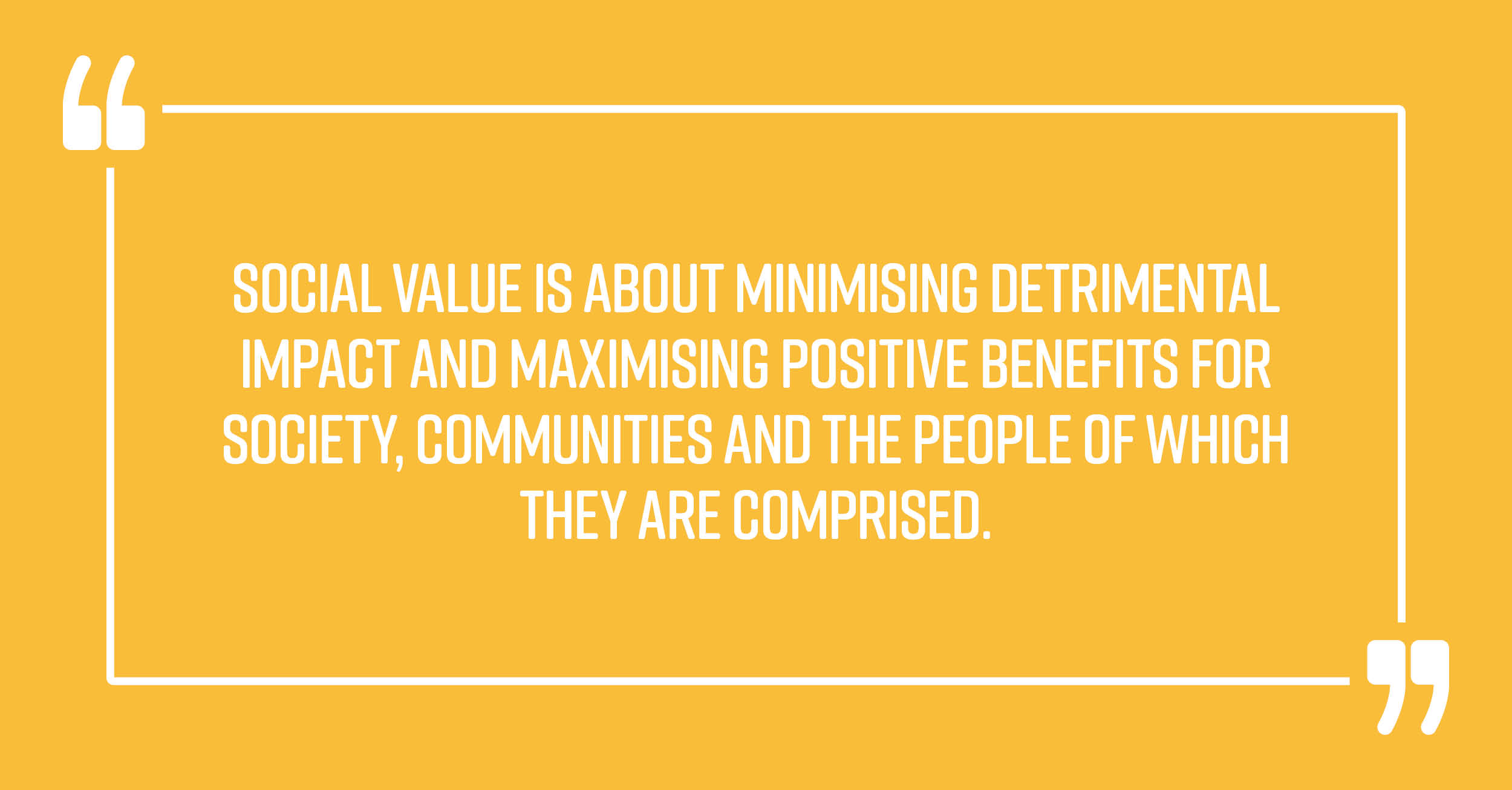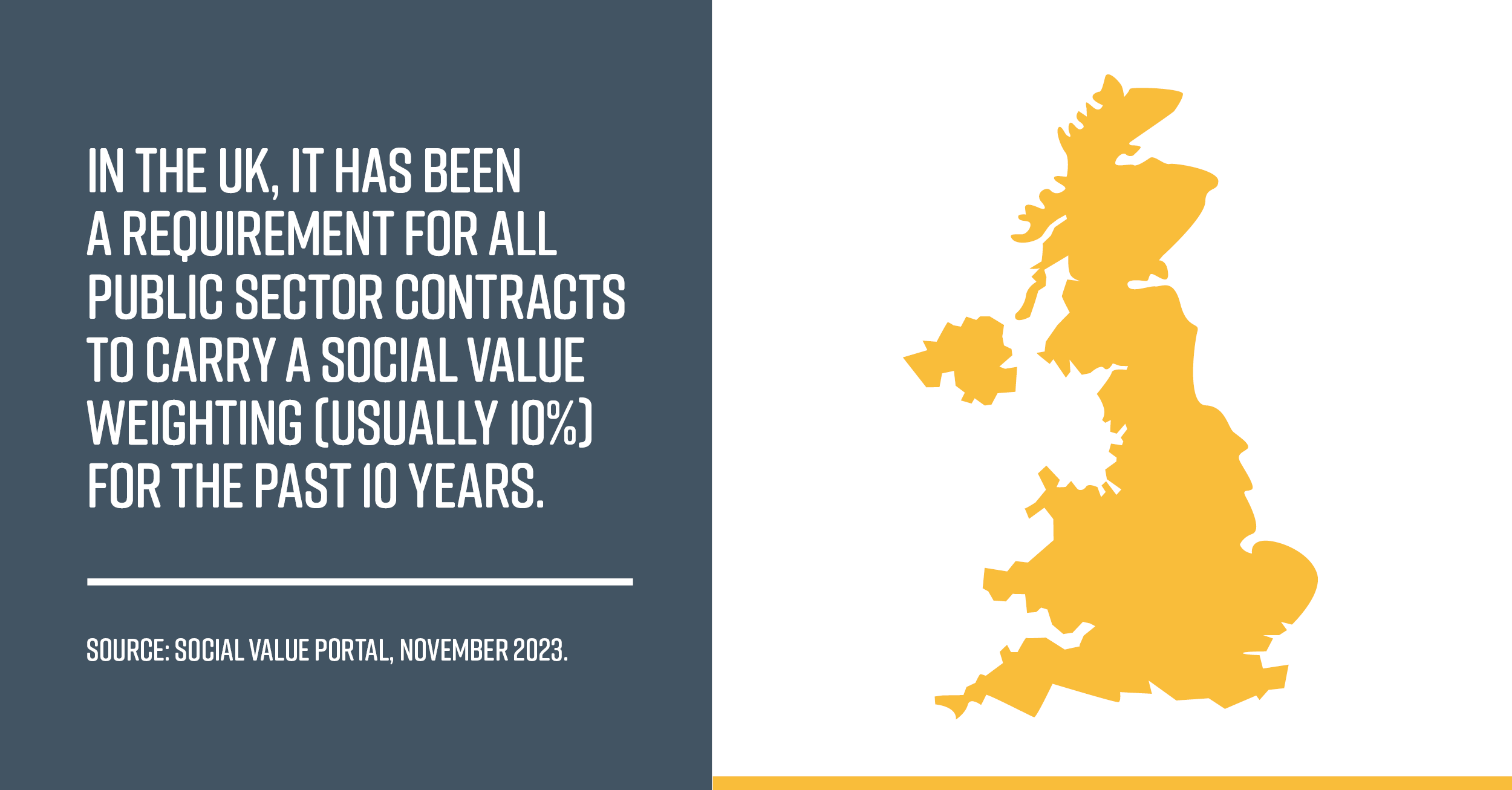Written by Guy Battle, the CEO of Social Value Portal. Guy is also chair of Riversimple Ltd , co-chair of the Public Sector Chapter of the Sustainable Procurement Pledge in the UK, and has also been a lead partner with Deloitte Sustainability Services.
What is Social Value?
Let me start with a quick definition of Social Value. It is about social, economic and environmental impact and most importantly, Social Value focusses on people – putting society at the centre of everything. When it comes to Social Value, the stakeholders are citizens. The public sector is there to serve society, which in turn, funds them via the tax we pay, and we certainly have the right to expect this to be spent wisely.
So Social Value is about minimising detrimental impact and maximising positive benefits for society, communities and the people of which they are comprised. All of which is enshrined in legislation via the Public Services (Social Value) Act 2012.
What Does “Value” Mean?
Value might mean reducing cost, but that is only part of the story. We are equally as interested in creating value. Take waste management – yes, we could negotiate a cheaper contract with improved efficiencies, but can the winning contractor offer opportunities to young people to build new skills and in doing so increase their life chances.
Whilst financial savings are an important driver in the public sector, without a shadow of a doubt, value is actually more important. And when we’re talking about value, we mean long-term value – social, economic and environmental value all in the same beautiful bucket!
How Do We Measure This “Value?”
Well, it has only taken me 30 years to work this out! I left Deloitte in 2014 (which happened to coincide with the emergence of the Social Value Act), and after much consideration I came up with the TOM System<sup>TM</sup>. TOM stands for Themes, Outcomes and Measures and allows the measurement of social value around five themes:
1. Jobs & skills
2. Supporting local businesses
3. Supporting our communities
4. Protecting our environment
5. Supporting social innovation
Within each theme there are a number of outcomes which can be delivered through a series of measures (i.e. actions) and in turn, every measure has an associated unit and £ value that reflects the financial benefit to society. Take the jobs category and giving a job to someone who’s long-term unemployed for example. They come off benefits, so, there’s a direct saving to HMRC, and now they have more money in their pocket to spend locally, so there’s an economic benefit as well. Central Government has already calculated many of these financial benefits (it’s called the Green Book) – we grab them, adapt them for the specific outcome we are measuring and build a value. In this way we can ascribe a value to a range of social interventions, which ladder up to the total contribution that a contract or an organisation is making to society.
You Have to be Whiter than White When it Comes to Your Green Credentials
Within the world of sustainability, we are constantly fighting the danger of greenwashing – organisations claiming to be “net zero” or “carbon negative”, but not providing the evidence and just using it as a PR stunt. In my view, over-claiming is a cardinal sin and needs to be avoided at all costs if we are to maintain the integrity and authenticity of the movement. And so the numbers we use come from government and for all of our customers, we insist on concrete, verifiable evidence; in fact we don’t accept any claim without it. This should be a standard across the industry but I fear that others are escalating their claims by using unsafe numbers and not bothering to verify their claims – greenwashing at its worst.
And That Goes for the Supply Chain Too
These days, any large organisation seeking to work with the public sector has to have a verifiable Social Value proposition. This is reflected in the evaluation weightings applied in public sector procurement which are usually at 15-20% and now even moving up to the 30% level. It’s as simple as that really – if you don’t have a Social Value strategy, then you are unlikely to be successful in winning work with the public sector.
Smart organisations are now telling their suppliers that they require their support, as they need to capture all the Social Value in their supply chain too. When public sector organisations clearly broadcast that they want to deal with businesses that deliver good value to them and their communities and citizens, they pass that imperative throughout the supply chain.
Suppliers who want to work with the public sector need to start thinking long-term. Don’t forget, our elected officials have an automatic four-year time horizon. Also, start framing bids in terms of what is the most “advantageous” which is a product of both cost and the delivery of verifiable Social Value. In other words, what delivers social, economic, and environmental benefits in the long term.
And remember, our public sector is not exactly flush with resources. It must be smart with how it spends its money – or should I say our money.
From Micro to Enterprise – We All Have to Walk the Walk
We’re an SME with a team of over a hundred people and of course we have our own Social Value policy. Amongst others, we provide all our people with six days of volunteering, with free access to the portal for voluntary organizations, we do paid internships and we even employ ex-offenders. Why? Because our team wants us to, and frankly it’s the right thing to do.
We live in a Social Value world, and many small and medium enterprises care about the community they are in – after all we are all part of a community, right? These organisations are community based. They are not big multinationals headquartered in London, and part of our role, together with the local authority, is to help them understand their positive impact and encourage them to do more of it.
The UK Has Made a Good Start
Actually, if you called this legislation “The Sustainability Act”, then we would be way ahead of everyone! There is no doubt The Public Services (Social Value) Act 2012 is making a real and positive difference in what the public sector requires of its suppliers. Across the UK there is something in the order of £200 billion spent by the public sector and across the world it is trillions – and at an average of +20% in Social Value, that is a lot of potential added benefits to our communities!
We are not totally alone, Canada has made a good start too where there’s some interesting legislation that empowers municipalities to assess the social impact of a bid and not just award it based on lowest price and we have just set up a Social Value Taskforce in Australia, led by the private sector, to develop a set of TOMs that reflect the local culture and priorities ‘down under’.
Even in the USA, where you might think from reading the right wing press that ESG and Social Value is some kind of great conspiracy to destroy the American way of life! However, and you might not think of it this way, but the MAGA (Make America Great Again) campaign is actually all about Social Value. By incentivising “buying local” you support local businesses employing local people and support their communities. Is it protectionism or Social Value creation? Either way, the outcomes are the same.
Social Value is not just for the public sector
Happily, and perhaps surprisingly, all of the great success in the public sector is now being taken up by the private sector, with real estate development and consumer facing organisations leading the way. Real Estate because they want to help planners and communities to understand the wider social benefits of their new developments and consumer facing companies because their customers want to be buying from organisations that add value to society and have a positive social impact – with the data to prove it!
Don’t Just Think Long – Think Small Too
If you are a small business, you might want to consider:
- You employ local people, so turn this into your employment strategy.
- Have a training scheme and think about having an apprentice Social Value programme.
- Encourage the team to volunteer in schools, maybe helping with reading lessons.
- Why not collect food parcels for the local food bank?
- When a computer is beyond its working life, give it to a charity to recycle or refurbish for use by the community.
All this generates Social Value and actually, it’s a lot easier to do it if you’re small.
Investors Love Social Value
Just one of the influences that we are seeing coming down the line is that of potential investors who want to make a difference – “Look, we obviously want to make money out of you, that’s why we’re investing, but we also want to understand what impact you are having on society.” They want to see what they get from investing, above and beyond a good earnings ratio.
This goes way beyond what is presently all the rage; ESG (Environmental, Social and corporate Governance) and it heralds a move to thinking about the value that a business can create for people, place and planet rather than just an assessment of risk (which of course remains an essential parallel step).
Another reason why investors love Social Value is that it matters to customers . People care where they buy their things from and how and by whom they are made. Increasingly, they want to know that these businesses care and are investing into the communities where they are making their product as well as the environmental impact, and this is especially true amongst the younger demographics.
 Three Things to Think About
Three Things to Think About
- Think beyond risk and environmental sustainability and consider the social and community contribution that you are making to people, place, and planet.
- When making a procurement decision, stop and remember to include the broader Social Value in that decision. Don’t just do it on cost, don’t just do it on whether or not an organisation has a policy around anti-slavery. Nobody should get loudly applauded for having an anti-slavery policy or for ensuring no kids are employed in the supply chain – it’s a legal requirement! Before awarding a contract, ask yourself, what additional value am I creating through my decision making?
Don’t underestimate the power of the money you are spending. Use it to drive change through a whole supply chain – positive purchasing! - Hold yourself to account and set targets. As a business, we have declared that between now and the end of 2026, together with our customers, we are going to unlock £100 billion worth of Social Value. We’re on £28 billion so far – we are just about on track – another £70 billion to go!



